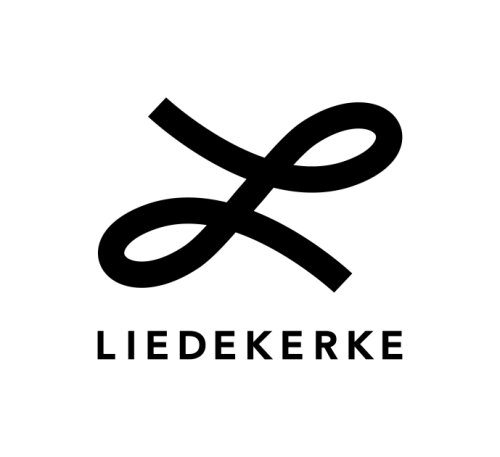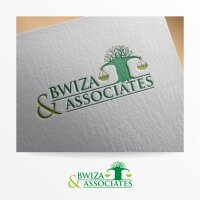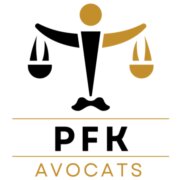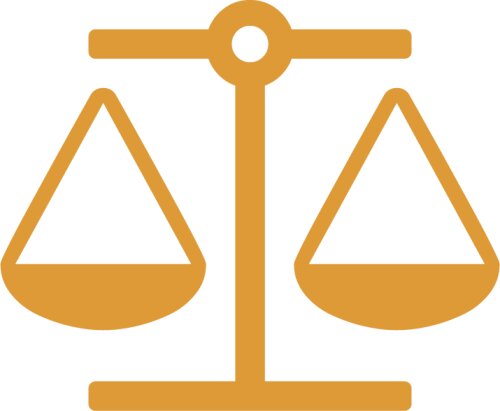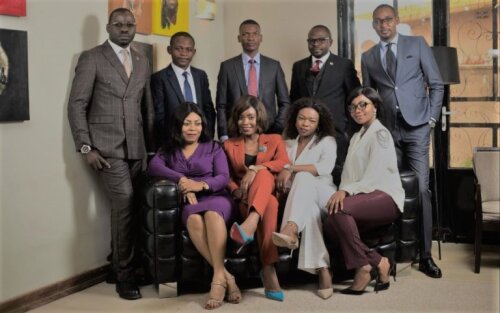Best International Trade Law Lawyers in DR Congo
Share your needs with us, get contacted by law firms.
Free. Takes 2 min.
Or refine your search by selecting a city:
List of the best lawyers in DR Congo
About International Trade Law in DR Congo
International Trade Law in the Democratic Republic of Congo (DRC) is designed to regulate the import and export of goods and services across international borders. It involves a complex framework of multilateral, bilateral, and national legal structures aimed at ensuring the efficiency, fairness, and legality of international trade. The DRC's strategic location, abundant resources, and growing economy make it a significant player in regional and global trade. The legal landscape governing international trade in the DRC is influenced by its membership in trade groups such as the World Trade Organization (WTO) and COMESA (Common Market for Eastern and Southern Africa), as well as its own national laws and regulations.
Why You May Need a Lawyer
Engaging with International Trade Law can be intricate, involving various regulations and compliance measures. Here are some common situations where legal assistance might be needed:
- Negotiating Trade Agreements: Expert advice is crucial during the negotiation of trade agreements to ensure beneficial terms.
- Understanding Tariff and Non-Tariff Barriers: Businesses need to navigate tariffs, quotas, and trade embargoes that could affect their operations.
- Customs Procedures and Compliance: Ensuring compliance with customs regulations to avoid penalties and delays.
- Dispute Resolution: Handling disputes in international trade can require specialist legal intervention.
- Export/Import Licensing: Assisting with obtaining the necessary licenses for legal trade activities.
Local Laws Overview
The key aspects of local laws relevant to International Trade Law in the DRC include:
- Customs Code: Governs the procedures and requirements for importing and exporting goods.
- Investment Code: Provides guidelines for foreign investments and international commercial involvement.
- Commercial Code: Laws related to contracts, companies, and commercial activities.
- Intellectual Property Rights: Protection of trademarks, patents, and copyrights in the trade context.
- Environmental Laws: Compliance with regulations related to environmental protection in international trade operations.
Frequently Asked Questions
What are the primary laws regulating international trade in DR Congo?
The primary laws include the Customs Code, Commercial Code, and various regulatory frameworks specific to sectors and goods.
Do I need a license to import/export goods to/from DR Congo?
Yes, a specific import/export license is often required. The type of license depends on the nature of the goods.
How does DR Congo's membership in international bodies affect its trade laws?
Memberships in bodies like the WTO and COMESA influence local laws to be aligned with international agreements and standards.
What are the common trade barriers in DR Congo?
Common barriers include tariffs, customs duties, non-tariff barriers, and regulatory restrictions in specific sectors.
How are trade disputes usually resolved?
Disputes can be resolved through domestic courts, arbitration, or through international trade bodies such as the WTO.
Are there incentives for foreign companies trading with DR Congo?
Yes, there are various incentives including tax breaks and investment benefits under the Investment Code.
What is the role of the customs authority in trade law?
The customs authority is crucial for enforcing laws related to tariffs, import/export regulations, and combating smuggling activities.
Can I engage in e-commerce internationally without additional legal considerations?
E-commerce involves additional legal considerations including cybersecurity, electronic contracts, and digital payment regulations.
What should I consider regarding trade compliance?
Understanding and adhering to both local and international regulations, avoiding prohibited activities, and maintaining required documentation are key.
Are there restrictions on trading certain goods?
Yes, some goods might be restricted or require special permits due to safety, health, or security concerns.
Additional Resources
For more information or legal advice, consider reaching out to the following resources:
- Ministry of Trade of DR Congo: Provides guidelines and information on all trade-related activities.
- DRC Customs Authority (DGDA): Important for understanding import/export regulations.
- Commercial Law Department: Offers insights into commercial legal practices.
- Local Bar Associations: Connecting with qualified attorneys specializing in international trade.
- Trade Associations: Engage with networks that facilitate business growth and trade.
Next Steps
If you need legal assistance in International Trade Law in DR Congo, consider the following steps:
- Consult a Specialist Lawyer: Choose a lawyer with expertise in International Trade Law in DR Congo.
- Prepare Documentation: Gather all necessary documents related to your trade activities.
- Understand Your Needs: Clearly identify the specific legal assistance you require.
- Reach Out to Relevant Bodies: Contact relevant government bodies or trade associations for guidance.
- Stay Informed: Keep updated with any changes in laws and trade regulations that might affect your interests.
Lawzana helps you find the best lawyers and law firms in DR Congo through a curated and pre-screened list of qualified legal professionals. Our platform offers rankings and detailed profiles of attorneys and law firms, allowing you to compare based on practice areas, including International Trade Law, experience, and client feedback.
Each profile includes a description of the firm's areas of practice, client reviews, team members and partners, year of establishment, spoken languages, office locations, contact information, social media presence, and any published articles or resources. Most firms on our platform speak English and are experienced in both local and international legal matters.
Get a quote from top-rated law firms in DR Congo — quickly, securely, and without unnecessary hassle.
Disclaimer:
The information provided on this page is for general informational purposes only and does not constitute legal advice. While we strive to ensure the accuracy and relevance of the content, legal information may change over time, and interpretations of the law can vary. You should always consult with a qualified legal professional for advice specific to your situation.
We disclaim all liability for actions taken or not taken based on the content of this page. If you believe any information is incorrect or outdated, please contact us, and we will review and update it where appropriate.
Browse international trade law law firms by city in DR Congo
Refine your search by selecting a city.






